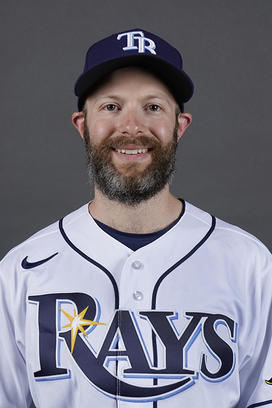Newsmakers Q&A: Tampa Bay’s Jonathan Erlichman ’12 on Baseball Analytics
Without peering into the dugout and seeing him in uniform, few would pick out Jonathan Erlichman ’12 as a veteran baseball coach, and indeed he never played the game past Little League. However, his impact for one of the most successful MLB franchises over the past decade has been measurable, and now in his fifth year as the Tampa Bay Rays’ process and analytics coach, his 11th overall with the organization, Erlichman has gained greater recognition for his role at baseball’s analytical cutting edge. PAW spoke with Erlichman about his career as the postseason action heats up in October.

Definitely. At the time, like from the outside, [they were] kind of the top of my list of teams that that might be a good fit. So I ended up being right about that, I guess, and very lucky. The entire situation here, it’s been pretty awesome.
You mentioned you were interested in analytics in high school and going into college. Did you have anyone who was a primary inspiration either on the analytic side, like Bill James, or now that you’re on more of the coaching side, anyone on that front?
I don’t know about specific inspiration, but I really got into the online baseball analytics community kind of when I was in the 16-to-22-ish age range. I mean stuff like Baseball Prospectus, Fangraphs, and Tom Tango’s blog were particularly helpful spots for me learning how to think about the game in that way and analyze things.
Have you seen the reception to your work change over the past few years, both from people in the sport and people in popular media? Are people becoming more receptive and understanding of some of the work that you do, or has there been push back in a “revolution to the revolution” kind of way?
No, I think the group we [the Rays] have had has been really great and really welcoming, and the specifics of the role change slightly year to year, based on the personnel and things like that. But from day one, and through this point, the players, the staff, everyone’s been really welcoming, really curious, and we’ve had a really great group that’s made me feel comfortable and be able to contribute from a different perspective.
Does anything from your time at Princeton, either from your degree or anything you did on campus, come into play with your job, anything that you specifically have taken forward?
I think just getting better at critical thinking. And problem solving is kind of, in the more abstract sense, probably the biggest thing that has helped out. Just being in that environment, and just having a pretty rigorous and difficult set of problems to work on throughout — that was definitely what set me on a foundation to be able to apply that kind of way of thinking to other problems and baseball.











No responses yet